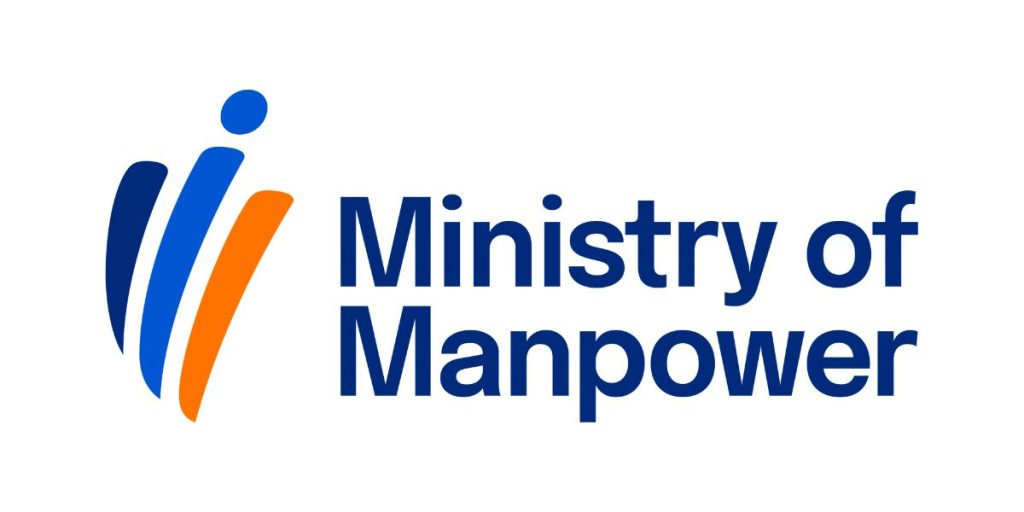
In today’s volatile economy, the pace of change is unrelenting—and the pressure is mounting on both employers and employees to evolve. Upskilling in Singapore is no longer a “nice-to-have” but a career imperative. As industries undergo digital transformation, workforce expectations shift, and government policy pivots towards long-term resilience, learning has become the new currency of employability.
This article explores how learning is reshaping Singapore’s workforce, why the Ministry of Manpower (MOM) is calling for structural change, and what both employers and employees must do to stay relevant.
Table of Contents
Singapore’s Workforce Landscape: Skills Gaps and Rising Expectations

Singapore’s labour market remains structurally tight, not due to a lack of jobs but a growing mismatch between available roles and in-demand skills in 2025. The unemployment rate hovers near record lows, yet many employers report difficulty finding qualified talent—particularly in growth sectors like tech, finance, sustainability, and advanced manufacturing.
Amid this imbalance, employees are raising their expectations. 3 in 4 workers in Singapore now consider training and development a key priority when evaluating job opportunities. This is no longer limited to fresh graduates or entry-level talent. Mid-career professionals are also recalibrating what career stability means, with learning and adaptability taking centre stage.
More than ever, the ability to grow within a role is a top reason people choose to stay. The absence of it? A growing reason they leave.
Upskilling as Currency: How Learning Drives Career Development in Singapore

In this new climate, learning has become more than a checkbox benefit—it’s the lens through which jobseekers assess long-term fit. For younger professionals, training opportunities signal whether a company is invested in their growth. For seasoned talent, continuous upskilling is a way to remain relevant amid technological disruption.
This shift is redefining what it means to be a competitive candidate. Skills like AI literacy, digital communication, agile thinking, and cross-functional collaboration are no longer niche—they’re baseline. And they’re influencing everything from hiring decisions to promotion criteria.
Smart employers are responding. Companies are integrating learning into performance management frameworks, building internal academies, and enabling cross-training across departments. Those that don’t risk losing high-potential talent to organisations that do. As a leading recruitment agency in Singapore, Trust Recruit has observed this trend across multiple industries, with candidates increasingly prioritizing employers who offer robust learning opportunities.
Also Read: The New HR: How AI in Human Resource is Shaping the Future
Professional Education in Singapore: The MBA Rebound and Skill Development

One of the strongest indicators of Singapore’s shifting workforce mindset is the renewed interest in postgraduate education—especially MBAs and executive programmes. This trend is most notable among professionals in their 30s and 40s.
Here’s what’s driving the surge:
- The education shift from “Credentials” to “Capability”
Today’s learners aren’t chasing credentials for vanity. They’re seeking the tools to lead, adapt, and stay ahead in increasingly complex markets. - MBAs as strategy accelerators
These programmes offer structured learning in high-value areas such as strategic thinking, financial decision-making, innovation and digital transformation, as well as cross-functional leadership. - Executive education as a transition tool
Mid-career professionals—especially those in industries facing saturation or automation—are increasingly turning to postgraduate diplomas and certificates to pivot into tech and data-driven roles, ESG and sustainability functions, as well as business transformation and operations.
For employers, this presents an opportunity: co-fund these ambitions, offer flexible study arrangements, or risk losing your most forward-thinking talent.
Singapore’s MOM Strategy: Building an Upskilled Workforce

Recognising these shifts, the Ministry of Manpower has outlined a three-part strategy to future-proof the workforce.
1. Redeploy, Don’t Retrench
Rather than letting go of staff when roles become obsolete, MOM encourages employers to redeploy them into adjacent functions.
This calls for the use of structured internal mobility frameworks and skills-mapping tools such as the Skills Framework by SkillsFuture Singapore, which identifies transferable competencies across job families. Employers can also partner with WSG’s Career Conversion Programmes (CCPs) to retrain employees for new roles within the company or industry.
2. Invest in Lifelong Learning
Learning should not be reactive or limited to annual workshops. Companies are encouraged to embed learning in daily operations through methods like microlearning, mentorship, and just-in-time modules.
Key initiatives include:
- SkillsFuture Enterprise Credit (SFEC): Provides funding support for employers to redesign jobs and implement training plans.
- Enterprise Training Support (ETS): Helps employers defray training costs and build learning systems aligned with business transformation.
3. Plan for Inclusion and Progression
Career advancement must be accessible across all employee levels—not just senior staff or high-performers. This involves implementing transparent job architectures, clear progression ladders, and role-specific upskilling pathways.
Employers are encouraged to leverage:
- Progressive Wage Model (PWM): Supports fair pay progression linked to skills upgrades.
- Workfare Skills Support (WSS): Helps lower-wage workers access training and receive course fee subsidies and cash incentives.
How to Upskill in Singapore: Employee Development Strategies

If you’re an individual navigating your career in this evolving market, here are specific steps to take:
1. Run a Personal Skills Audit
Use tools like MySkillsFuture to assess your current capabilities and identify skill gaps relative to your career goals.
2. Stack Skills Strategically
Don’t just chase certifications. Build complementary skill sets. For example, a finance professional might stack ESG reporting with data visualisation and risk analytics.
3. Tap Company Resources
Propose a learning plan to your manager. Highlight how it supports both your development and the company’s evolving needs.
4. Engage with Industry Communities
Platforms like TechLadies, SGInnovate, and Young NTUC offer networking, learning, and mentorship opportunities that accelerate exposure and growth.
5. Consider Formal Education for Pivots
If you’re eyeing a leadership role or industry switch, consider an MBA, postgrad diploma, or part-time degree—especially those aligned with national upskilling priorities.
6. Stay Visible to Strategic Employers
Register with platforms like Trust Recruit to access curated job matches, career coaching, and recruiters who understand the value of transferable skills. Submit your resume today or send an inquiry to connect with our specialist recruitment consultants who can guide your upskilling journey and match you with employers that value continuous development.
Future-Proofing Careers: The Value of Upskilling in Singapore
Upskilling in Singapore is the new foundation for career longevity. For employers, it’s the most sustainable way to close skills gaps and build organisational resilience. For employees, it’s how you future-proof your career path in a market that rewards agility and growth.
Whether you’re a hiring manager, HR leader, or professional at a crossroads, the faster you invest in capability, the better positioned you are for what’s next.
